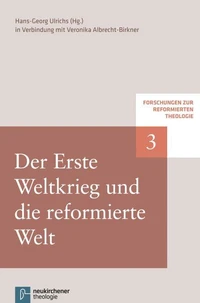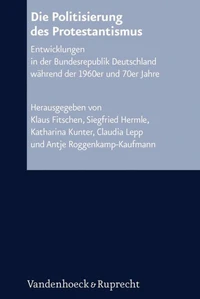Liebe zwischen Männern?. Der deutsche Protestantismus und das Thema Homosexualität
Par :Formats :
Disponible dans votre compte client Decitre ou Furet du Nord dès validation de votre commande. Le format PDF est :
- Compatible avec une lecture sur My Vivlio (smartphone, tablette, ordinateur)
- Compatible avec une lecture sur liseuses Vivlio
- Pour les liseuses autres que Vivlio, vous devez utiliser le logiciel Adobe Digital Edition. Non compatible avec la lecture sur les liseuses Kindle, Remarkable et Sony
 , qui est-ce ?
, qui est-ce ?Notre partenaire de plateforme de lecture numérique où vous retrouverez l'ensemble de vos ebooks gratuitement
Pour en savoir plus sur nos ebooks, consultez notre aide en ligne ici
- Nombre de pages224
- FormatPDF
- ISBN978-3-374-05589-0
- EAN9783374055890
- Date de parution01/12/2018
- Protection num.Digital Watermarking
- Taille2 Mo
- Infos supplémentairespdf
- ÉditeurEvangelische Verlagsanstalt
Résumé
Erst mit dem gesellschaftlichen Wandel nach 1945 und speziell seit den 1960er Jahren konnte über das Thema Homosexualität in Kirche und Gesellschaft offen gesprochen werden. Ab den 1970er Jahren meldeten sich dann die "Betroffenen" selbst zu Wort. Dabei ist im deutschen Protestantismus ein Prozess von der Stigmatisierung von Homosexuellen als krank oder seelsorgebedürftig über ihre Akzeptanz als andersartig bis hin zu einem pragmatischen Umgang mit der Thematik zu beobachten.
Freilich überlagern sich diese Entwicklungen, sodass sich keine reibungslose Geschichte einer Korrelation zwischen gesellschaftlicher und innerkirchlicher Entwicklung ergibt. Dabei spielen auch das kirchliche Dienstrecht und die Frage gleichgeschlechtlicher Trauungen eine wichtige Rolle. Die Prozesse dieses ethischen Umdenkens stellt der bekannte Leipziger Kirchenhistoriker Klaus Fitschen kundig und eindrücklich dar. [Love Between Men? The German Protestantism and the Subject of Homosexuality] To talk openly about the issue of homosexuality (and thereby about homosexuals) in the church and in society was not possible until the societal transformations after 1945, in effect not until the 1960s.
And it was even in the 1970s, when the >involved persons< themselves began to speak. In German Protestantism we can observe a process from treating homosexuality as an illness or as a case for pastoral care to its acceptance as >something different< and finally to an issue that should be discussed pragmatically. Of course these developments overlaid each other, so in result we cannot draw a clear line of an historical correlation between the societal and church-internal developments.
Relevant in this context are also the clerical public services law and the question of same-gender marriages.
Freilich überlagern sich diese Entwicklungen, sodass sich keine reibungslose Geschichte einer Korrelation zwischen gesellschaftlicher und innerkirchlicher Entwicklung ergibt. Dabei spielen auch das kirchliche Dienstrecht und die Frage gleichgeschlechtlicher Trauungen eine wichtige Rolle. Die Prozesse dieses ethischen Umdenkens stellt der bekannte Leipziger Kirchenhistoriker Klaus Fitschen kundig und eindrücklich dar. [Love Between Men? The German Protestantism and the Subject of Homosexuality] To talk openly about the issue of homosexuality (and thereby about homosexuals) in the church and in society was not possible until the societal transformations after 1945, in effect not until the 1960s.
And it was even in the 1970s, when the >involved persons< themselves began to speak. In German Protestantism we can observe a process from treating homosexuality as an illness or as a case for pastoral care to its acceptance as >something different< and finally to an issue that should be discussed pragmatically. Of course these developments overlaid each other, so in result we cannot draw a clear line of an historical correlation between the societal and church-internal developments.
Relevant in this context are also the clerical public services law and the question of same-gender marriages.
Erst mit dem gesellschaftlichen Wandel nach 1945 und speziell seit den 1960er Jahren konnte über das Thema Homosexualität in Kirche und Gesellschaft offen gesprochen werden. Ab den 1970er Jahren meldeten sich dann die "Betroffenen" selbst zu Wort. Dabei ist im deutschen Protestantismus ein Prozess von der Stigmatisierung von Homosexuellen als krank oder seelsorgebedürftig über ihre Akzeptanz als andersartig bis hin zu einem pragmatischen Umgang mit der Thematik zu beobachten.
Freilich überlagern sich diese Entwicklungen, sodass sich keine reibungslose Geschichte einer Korrelation zwischen gesellschaftlicher und innerkirchlicher Entwicklung ergibt. Dabei spielen auch das kirchliche Dienstrecht und die Frage gleichgeschlechtlicher Trauungen eine wichtige Rolle. Die Prozesse dieses ethischen Umdenkens stellt der bekannte Leipziger Kirchenhistoriker Klaus Fitschen kundig und eindrücklich dar. [Love Between Men? The German Protestantism and the Subject of Homosexuality] To talk openly about the issue of homosexuality (and thereby about homosexuals) in the church and in society was not possible until the societal transformations after 1945, in effect not until the 1960s.
And it was even in the 1970s, when the >involved persons< themselves began to speak. In German Protestantism we can observe a process from treating homosexuality as an illness or as a case for pastoral care to its acceptance as >something different< and finally to an issue that should be discussed pragmatically. Of course these developments overlaid each other, so in result we cannot draw a clear line of an historical correlation between the societal and church-internal developments.
Relevant in this context are also the clerical public services law and the question of same-gender marriages.
Freilich überlagern sich diese Entwicklungen, sodass sich keine reibungslose Geschichte einer Korrelation zwischen gesellschaftlicher und innerkirchlicher Entwicklung ergibt. Dabei spielen auch das kirchliche Dienstrecht und die Frage gleichgeschlechtlicher Trauungen eine wichtige Rolle. Die Prozesse dieses ethischen Umdenkens stellt der bekannte Leipziger Kirchenhistoriker Klaus Fitschen kundig und eindrücklich dar. [Love Between Men? The German Protestantism and the Subject of Homosexuality] To talk openly about the issue of homosexuality (and thereby about homosexuals) in the church and in society was not possible until the societal transformations after 1945, in effect not until the 1960s.
And it was even in the 1970s, when the >involved persons< themselves began to speak. In German Protestantism we can observe a process from treating homosexuality as an illness or as a case for pastoral care to its acceptance as >something different< and finally to an issue that should be discussed pragmatically. Of course these developments overlaid each other, so in result we cannot draw a clear line of an historical correlation between the societal and church-internal developments.
Relevant in this context are also the clerical public services law and the question of same-gender marriages.




